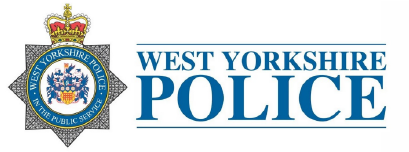Death by Dangerous Driving: Tara & Oliver
Tara was referred to the Restorative Justice team in West Yorkshire. Her brother, Thomas, had been killed three years previously by Oliver, who had been speeding. Oliver, now 23, was given a 4 year prison sentence. There were things which Tara was particularly angry about. COVID-19 and related pressures on the legal system meant that there were 3 years between Thomas’ death and Oliver’s sentencing. Oliver had pled “not guilty” until the day of the trial, when he pled “guilty”. She concluded he was not taking responsibility. Additionally, Oliver’s mother repeatedly contacted Tara on Facebook to advocate for her son, insist he had done nothing wrong and query if Thomas may have deliberately stepped in front of Oliver’s car. Tara found it disrespectful that she had heard from Oliver’s family, but not from Oliver. In discussion, Tara came to the conclusion that she wanted to speak to him, to explain the impact of Thomas’s death, and to ask about some of the things that had been happening.
Facilitators met with Oliver. This was the only time he had been in trouble with the police, and was finding it hard to adapt to life in prison and come to terms with the fact he had killed someone. He was enthusiastic about Restorative Justice, particularly about having an opportunity to apologise. He repeatedly said “whatever that family need, I’ll do it. I’m so sorry.” This was very much at odds with Tara’s understanding of him. Oliver’s Offender Manager expressed concerns about his vulnerability. While she appreciated his desire to meet with Tara, she also was aware that Oliver had recurrent nightmares, was taking prescribed medication and had a diagnosis of Post Traumatic Stress Disorder. She explained that although she fully understood Tara’s anger, she worried that it could be detrimental to Oliver’s mental health. Facilitators recognised this, and prep work focussed on what Oliver could be responsible for (his own actions), and what he couldn’t be (the actions of others). They were also able to explain some aspects of the criminal justice system which Tara was unaware of – e.g., that Oliver was expressly forbidden from contacting her or her family.
A meeting took place between Oliver and Tara. Though emotive, Oliver and Tara were able to explain their points of view and a lot of misunderstandings were cleared up. Oliver explained that his mother had mental health issues, and had struggled to come to terms with him being in prison. He was aware of the messages his mother was sending, and explained that he spent a lot of time emphasising that her actions – though well-meaning – were unhelpful. Tara queried why he pleaded “not guilty”, and Oliver explained that he had been advised to do this by the duty solicitor assigned to him (“I’ve never been in this position before. This guy told me what to say and I said it. I assumed it was the right thing. The next time I was asked, I had a better understanding of things and I changed my plea. It was the right thing.”) He explained that he took responsibility for his actions.
Tara spoke of the impact that Thomas’ death had on the family, particularly his children. Oliver asked if there was anything he could do to help, and Tara suggested that he write a letter to the children, to be read when they were older. Thomas agreed. Tara concluded, saying “We came into each other’s lives through awful circumstances. I came here to let you know that I know you’re remorseful. I see it in front of me. I hear it in your apologies. I believe you. I forgive you.”
Oliver reports feeling “so, so relieved” that he had an opportunity to apologise. In the weeks following the meeting, he initiated discussions with medical staff about coming off his prescribed medication (“I feel stronger. I needed it for a while. Maybe not anymore.”). As the meeting went well, Oliver’s mother has stopped messaging Tara. Oliver completed the letter, and facilitators delivered it to Tara. Tara shared it with her family. Her father has said that “it makes me respect him more. It must have taken a lot to write something like this.” Tara says that she feels “peaceful. I realise now that he didn’t mean for this to happen and he’s trying to fix it as best he can. I appreciate that.”
If you are interested in finding out more about how Restorative Justice might help you and you are based in West Yorkshire, please give us a call on 0800 783 1550 or email us at rjwestyorkshire@restorativesolutions.org.uk and we will be glad to help you.



